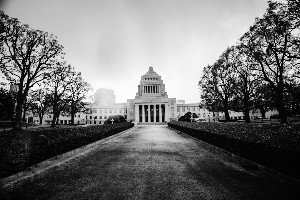Ivan Šimović, Josipa Kokić
ROLE OF THE PARENTS IN THE EXERCISE OF THE CHILD’S RIGHT TO FREEDOM OF THOUGHT, CONSCIENCE AND RELIGION
Introduction
Role of the parents in the exercise of the child’s right to freedom of thought, conscience and religion. Analyzes parents' crucial role in a child's freedom of thought, conscience, and religion (UNCRC Art. 14). Covers parental guidance, limitations, and conflicts with other child rights.
Abstract
The right of the child to freedom of thought, conscience and religion is one of the four participation rights of the child, protected under Article 14, paragraph 1 of the UNCRC. As such, it enables the child to be an active member of society. However, due to child’s vulnerability, immaturity and dependency on adults, the role of parents in exercising this (and other) right(s) is of a great importance. As the child’s legal representatives, parents are entitled to provide direction and guidance in the exercise of this child’s right (Article 14, paragraph 2 of the UNCRC). Nevertheless, according to Family law theory, such direction and guidance must be subject to certain limitations. Additionally, parents are entitled to decide about child’s religious upbringing, which can result in conflict between their right to determine child’s religion and child’s rights, such as right to education, right to life, survival and development, and rights to physical integrity, self-determination and health. Conflicts are also likely to arise in case of divorce of parents in regarding the determination of child’s religious upbringing. While discussing the right to determine child’s religion, the role and rights of adoptive parents shall not be overlooked. Finally, the limitations of the right of the child to manifest religion are also examined.
Review
The submitted paper, "ROLE OF THE PARENTS IN THE EXERCISE OF THE CHILD’S RIGHT TO FREEDOM OF THOUGHT, CONSCIENCE AND RELIGION," addresses a crucial and often sensitive area of children's rights law. By focusing on Article 14, paragraph 1 of the UNCRC, the abstract immediately positions the research within a significant international legal framework, emphasizing the child's participation rights. The core tension—balancing a child's inherent right to freedom of thought, conscience, and religion with the necessary guidance and protection afforded by parents due to the child's vulnerability and dependency—is clearly articulated, highlighting the practical and ethical complexities inherent in this domain. This work promises to be a timely and relevant contribution to the discourse surrounding child autonomy and parental responsibility. The abstract outlines a comprehensive scope, detailing several critical facets of this interplay. It correctly identifies the statutory basis for parental direction and guidance under Article 14, paragraph 2, while also recognizing the crucial limitations derived from family law theory. The exploration of potential conflicts, particularly those arising from parental decisions regarding religious upbringing conflicting with other fundamental child rights—such as education, health, physical integrity, and self-determination—is highly pertinent. Furthermore, the abstract wisely extends its analysis to specific challenging scenarios like parental divorce and the distinct considerations for adoptive parents, demonstrating an awareness of the diverse practical contexts in which these rights are exercised and contested. The final inclusion of limitations on the child's right to *manifest* religion also adds important nuance to the discussion. While the abstract provides a strong overview of the ground to be covered, a clearer indication of the paper's analytical approach or methodology beyond simply "Family law theory" would enhance its appeal. It effectively identifies various conflicts and complexities but leaves the reader curious about the framework or principles the author will employ to navigate or propose resolutions for these intricate issues. Will the paper offer a balancing test, propose legislative reforms, or advocate for specific interpretive principles to reconcile conflicting rights? Expanding on how the paper moves beyond simply describing the "role" and potential "conflicts" to offering solutions, a theoretical model, or practical guidance would further strengthen its contribution to legal scholarship and potentially to practical application for judges, legal practitioners, and policymakers dealing with these sensitive matters.
Full Text
You need to be logged in to view the full text and Download file of this article - ROLE OF THE PARENTS IN THE EXERCISE OF THE CHILD’S RIGHT TO FREEDOM OF THOUGHT, CONSCIENCE AND RELIGION from EU and comparative law issues and challenges series (ECLIC) .
Login to View Full Text And DownloadComments
You need to be logged in to post a comment.
Top Blogs by Rating
God in the Glitch: Embracing t...
By Sciaria
Is Electro Music the New Class...
By Sciaria
Unlocking the Power of Nurse I...
By Sciaria
Favorite Blog
The Elusive Self: Is Authentic...
By Sciaria
Life's Grand Algorithm: Is Bio...
By Sciaria
The Gamification of Governance...
By Sciaria





